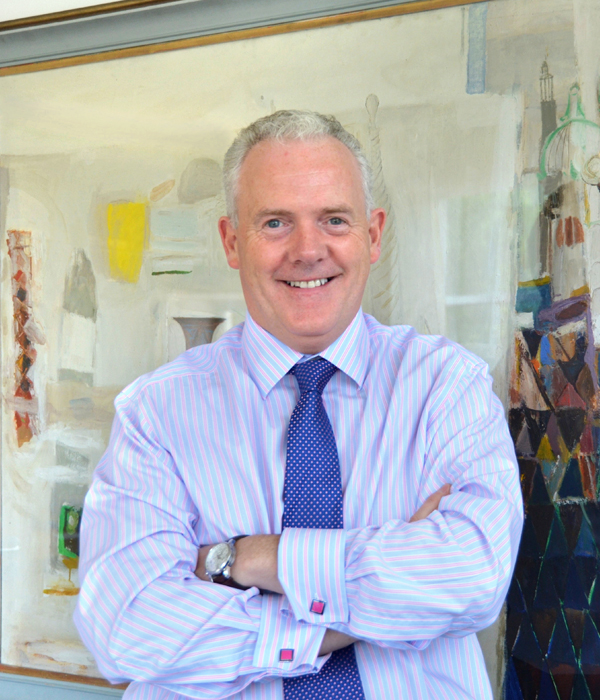The University recognises its statutory duties in relation to race equality and understands the links between race equality and success. We are committed to ensuring that all staff and students – as part of a positive “Stirling Experience” - can work, study, research and participate in an environment that supports them to succeed. The University recognises its duties as a supportive employer and educator and is committed to identifying and taking steps to address any systemic factors that might prevent members of our community from benefiting equitably from opportunities.
The success of the anti-racism and race equality strategy is dependent upon the creation of a campus environment in which cultural differences are celebrated and embraced by the entire University community, and where a culture of tolerance, empathy and mutual respect are promoted in all aspects of University life. As the University community becomes increasingly diverse and international, this becomes ever more important. The strategy reflects and aligns with the University’s approach to learning and teaching, specifically its commitment to developing inclusive curricula, and is consonant with the University’s position as an internationally oriented, global institution.
Strategy vision
We will develop and nurture a culture and environment that respects the rights and dignity of our diverse community, prevents and tackles racism and racial harassment, and celebrates and enhances the diversity and multi-culturalism of our students and staff, enabling them to thrive and achieve their potential whilst achieving our institutional ambitions.
This relies on the creation of an anti-racist institutional culture which recognises the link between race equality and success, and which enables our community to competently, confidently and constructively challenge racism without stigma or fear.
What we want to achieve
In the pursuit of this vision, we will:
1. Understand: Better understand the lived experience of ethnic minorities and people of colour in our community and understand the impact of our actions.
- Engage with and listen to ethnic minority staff and students and people of colour to understand their lived experiences.
- Improve data collection and analysis across all key stages of the student journey and the staff experience.
- Apply the findings of national research and good practice to our work to address racism and racial inequality.
- Assess the race equality impact of decisions, policies and activities (via conducting “equality impact assessments”).
- Evaluate the impact of interventions to tackle and respond to racism and racial inequality.
- Report regularly on progress to the governing body (University Court).
2. Respect: Build an anti-racist institutional culture where racism is eradicated and diversity respected, by exhibiting strong leadership and building trust through open and honest conversations in our community.
- Demonstrate committed, inspirational and impactful leadership, whilst simultaneously encouraging, role modelling and rewarding anti-racist leadership behaviours at all levels of the organisation.
- Build trust with black, Asian and ethnic minority staff/students, ensuring they feel empowered and safe to report incidents and share their experiences.
- Create safe spaces for constructive discussions about diversity, interculturalism, race, racism, privilege, whiteness and historical injustice, and take steps towards reparative justice where necessary.
3. Prevent: Raise awareness of the nature and impact of racism and racial inequality, and take action to prevent it occurring in our community.
- Raise awareness, through campaigns, training and constructive conversations - involving staff, students and our governing body - on racial inequality, including concepts such as structural racism, interculturalism, white privilege, white fragility, microaggressions and our shared responsibilities to prevent and tackle racism.
- Develop and implement guidance and codes of conduct that clarify the responsibilities of all members of our community in respect of preventing and responding to racism, and incorporate our expectations into staff and student inductions and the curriculum.
4. Respond: Ensure robust systems are in place to report and respond to incidents of racism, racial harassment and hate crime, whilst ensuring any member of our community affected by racism is supported.
- Ensure systems to report racism, racial harassment and hate crime to the University and/or the Police are accessible and well promoted.
- Provide accessible, effective and culturally aware support services for anyone subjected to racism and racial harassment.
- Ensure all staff involved in investigations and disciplinary proceedings are trained to understand racism, racial bias and the impact of trauma on a victim of racism[1].
- Publish data on the number/type of reports and the aggregated outcomes of reports of racism and racial harassment.
- Develop partnerships and referral routes with local and national specialist support agencies.
- Collaborate with other institutions, including Forth Valley College and other universities, to optimise our approach to racism.
5. Promote: Promote interculturalism, and celebrate Black, Asian and ethnic minority culture, history and success.
- Develop and deliver on-campus initiatives and programmes to foster strong intercultural relationships and build good relations between staff and students from different cultural backgrounds.
- Celebrate examples of black, Asian and ethnic minority culture, history and success.
- Identify, promote and celebrate good practice in our community to tackle societal racism and racial injustice.
6. Enhance: Identify and address systemic inequalities and barriers to racial equality in our community.
- Identify and take action to address known inequalities in relation to recruitment, career advancement, promotions, educational attainment, access to services and access to leadership and governance positions.
- Improve the proportion of Black, Asian and Ethnic Minority people in leadership and governance positions.
- Ensure that curricula, pedagogy and assessment methods are inclusive and pay due regard to the global, multi-cultural nature of our student body.
[1] Note this assumes the current model of how we manage investigations remains in place.

